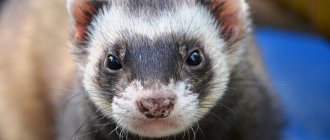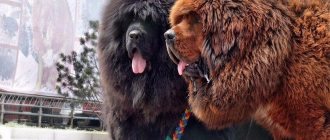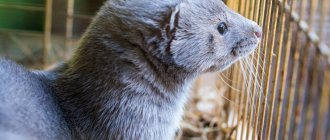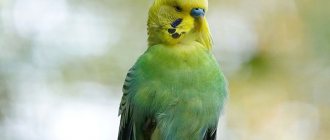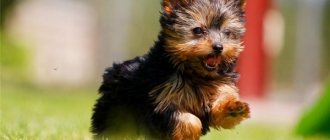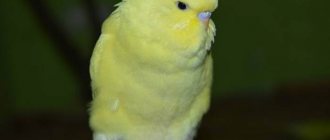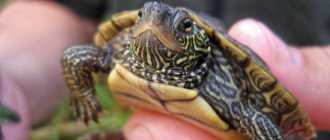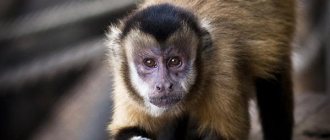Ferrets as pets are becoming more and more popular every year. But for our country, the ferret is still an exotic animal, unlike, for example, America, where more than 7 million people keep these animals at home. But a ferret at home is not only fun, fun, positive, but also a lot of responsibility, time, patience and careful care of the owner. Ferret owners probably know what is necessary for the happiness and health of their charges. But if you are just planning to get this exotic pet, it would be a good idea to find out what caring for a ferret involves and whether it is so difficult.
Description and characteristics of the animal
The ferret belongs to the mustelid family and belongs to the forest, steppe and American species of predators. Man has tamed forest and steppe species of animals. I learned everything about keeping and breeding ferrets. And now domestic animals are also called ferrets.
Appearance
The ferret has an elongated body and thick fur. The size of a ferret depends on the species. On average, the body length is no more than 50 cm, weight is from 0.3 to 2 kg, and the tail is 20 cm long.
The animal has strong paws and a long neck. This structure helps him penetrate the most inaccessible places and engage in petty theft.
Character and habits
A ferret can behave differently. The character of the animal emerges by 4 months. At this time, he has already learned to follow all the rules and follow your commands. And now the time has come to show your personality:
- temperament depends on his gender. Females are smarter than males, but males are more reserved. The female can rarely be picked up, but the male can even fall asleep on the owner’s lap;
- resembles a human in character. While he is small, he is very restless; becomes extremely impudent as a teenager; an adult pet gains wisdom and behaves more measuredly;
- This animal retains fun and mischief throughout its life;
- Ferrets are quite stubborn animals. If he needed something, he couldn't stop it. And also how you can’t discourage him from digging the soil in your flower pots. But you can organize a separate nook for him for this;
- inquisitiveness or curiosity is another characteristic of the ferret. It can be a serious problem because it is not always possible to keep track of this entire process;
- The ferret does not feel danger in anything at all. His fearlessness leads him to the highest cabinets or into a container of water. He can fight with a larger animal. With all this, the consequences can be disastrous for him.
And yet, the main quality of the home ferret remains his cheerful and unusual disposition. Therefore, you will never be bored with him.
How long do ferrets live?
At home, ferrets live from 8 to 10 years. Although there are also long-lived individuals, living up to 15 years. The lifespan of a domestic ferret directly depends on the conditions of detention and heredity.
If you want your pet to live with you for a long time, provide it with proper care and pay more attention.
Relationships with other pets
If you have other pets in the house, it is better not to show them to each other right away. A decorative ferret must first become familiar with its habitat and get used to the conditions. The best way to communicate is with the same animal. They will quickly become friends and spend a lot of time together.
With dogs
The interaction between ferrets and dogs depends on the breed of the latter. Large breeds of dogs are more popular with small animals; they are associated with tender feelings and strong friendship.
Small breeds of dogs cause irritation in them due to the similarity in character. Ferrets hurt small dogs. Hunting breeds, on the contrary, can offend a small neighbor if they see him as prey.
The most successful condition for the emergence of friendly relations between a dog and a ferret is if you brought a small animal to an adult dog; or both childhood pets.
With cats
Ferrets and cats can develop a wonderful relationship, or they may not pay attention to each other. But there will be no enmity between them if the owner loves them equally.
Cats are used to being loved, so they should not see the owner's warmer attitude towards the ferret.
With birds, rodents, reptiles
You should always remember that a ferret is a predator. Birds, rodents, fish, lizards are prey for him. Therefore, they should be kept in a remote place.
Interesting Facts
- Ferrets were domesticated by humans more than 1,000 years ago. In those days, they were often used for hunting rodents.
- Contrary to popular belief, ferrets are carnivorous predatory animals of the mustelidae family, and not rodents at all.
- Ferrets are born so small that they can fit in a teaspoon.
- Ferrets can crawl into very narrow cracks that, at first glance, seem impossible to penetrate.
- Ferrets have poor eyesight, but they compensate for this deficiency with excellent hearing and smell.
- The normal heart rate of a healthy ferret is 200 to 250 beats per minute.
As you can see, there are quite a few peculiarities of keeping a ferret in an apartment. If you are ready to put up with the hassle, can easily tolerate the smell of ferrets and love exotic pets, then a ferret will become a great friend for you and will give you a lot of positive emotions. We hope this article will help you make the right choice.
Choice of animal
As pets, ferrets are very unusual. Therefore, you need to approach the choice of a pet responsibly, paying attention to any little details:
- You should buy it from a nursery to be sure of its good heredity and that you were not sold a wild specimen. Take contact information from the breeder so you can contact him after purchasing the pet.
- The age at the time of purchase must be no younger than 1.5 and no older than 4.5 months. In determining the age, you will have to rely on the honesty of the breeder.
- Health is the main selection criterion. The eyes, nose, and fur should be clean, movements should be smooth, and the ferret itself should not be aggressive. By the way, if an animal gets scared and behaves viciously, this may be a sign that it is wild and not domestic.
Nail trimming
Ferrets' claws grow quite quickly, so they need to be looked after. Special nail clippers, a file and good lighting will help you in this matter. In order not to touch the blood vessel of the claw, you only need to cut off the hook growing downwards. If you accidentally touch a vessel, you should press a cotton swab moistened with an iodine solution to the damaged claw.
It is more convenient for two people to trim a ferret’s claws: one person holds the ferret, the other trims the claws. But it’s really possible to do this alone, distracting the animal with treats. You can lay your ferret on his back, spread vitamin paste on his belly, and trim his nails while he licks his belly.
Buying a ferret. Practical advice
Before deciding to buy an animal, you need to pay attention to 6 factors:
- Puppy price. A pet ferret doesn't come cheap. If you do not want to face various problems in the future, then be prepared to buy a pet at an appropriate price.
- Maternal nutrition. The health of her puppies depends on what the female ate. The food must be special and of good quality. Puppies should receive vitamins.
- Parents' health. It is important that both the female and the male are tested for infections before mating. This will be confirmed by the certificates that the breeder will show you.
- Place where the female and puppies are kept. They should not live in a cage - puppies need space to develop properly. It is good if they are kept in an enclosure.
- Swimming. Puppies should be taught to swim from a young age. This will avoid weak muscles, weak bones and the development of rickets.
- Pet documents. The puppy must have a certificate, a veterinary passport indicating the vaccination performed, and a pedigree.
Keeping a pet
Keeping a ferret in the house requires careful attention. He is unlike other pets, which means he needs special conditions.
Where to keep the animal: in a cage or in an apartment
Keeping a ferret in an apartment is possible if there is an enclosure. If you put an animal in a cage, then be prepared to let it out into the wild for several hours a day.
If this is not possible, then it is better to equip the enclosure with everything necessary. Moreover, you can put the enclosure both in the apartment and on the loggia, if you are sure that there are no drafts there.
Arrangement of the cage
The ferret's house should be equipped with a feeder, water bowl and tray. A sleeping place can be made from an ordinary box by laying soft fabric there.
It's good if your pet has several floors with different transitions between them.
What to feed your ferret at home
The ferret's body does not need a variety of nutrition. You need to immediately decide what type of food you will use:
- natural food - imitation of the natural habitat. These are food mice, cockroaches and worms. For home maintenance, this method is not entirely acceptable;
- natural or regular food. The ferret is fed turkey, chicken, beef, cartilage, low-fat sea fish, offal, fruits, berries, vegetables, vitamin complexes, and sometimes porridge;
- ready-made balanced special food of good quality. Such mixtures already contain everything that a ferret needs for health and well-being. This method of feeding makes caring for the animal much easier. It is better not to add any other products, otherwise the predator may refuse the ready-made mixtures completely;
- It will be useful for babies to be given different cereals with a small addition of cow's milk. They will also love minced chicken and turkey. This diet will be useful for animals up to one month old.
What not to feed ferrets:
- bread, buns, pies and other bakery products;
- sweets, sugar, marmalade and so on. It is necessary to completely exclude sweets from the animals’ diet, otherwise it will have a detrimental effect on health;
- It is also advisable to exclude nuts, seeds, beans and legumes from the diet, just as sweets have a bad effect on the animal’s well-being;
- vegetable proteins (soybeans, etc.), vegetables with coarse fiber (carrots, turnips and other roots), whole grains, potatoes, mushrooms, garlic, onions and citrus fruits;
- We also remove smoked meats from the animals’ menu, although they will beg for it if they smell it. Therefore, it is better to refuse such products yourself;
- Fatty or fried foods must be removed and hidden. If such food is prepared at home, then you need to monitor it and not leave it unattended;
- Dairy products should be abandoned as the animal may have problems with the gastrointestinal tract. And a trip to the veterinarian is guaranteed for fun games. Therefore, it is not recommended to keep this product in a tetrapack or in film and unattended;
- You should not experiment with ready-made food for cats and dogs. The diet of these animals varies greatly. And therefore, if you want to have a cheerful and playful animal at home instead of a lethargic and forever sleeping animal, then give up this idea.
Since domestic carnivores have an accelerated metabolism, they need to be fed more often, about 4–6 times a day. You need to watch the portions and give not a large amount, otherwise overeating is guaranteed.
Approximate dietary requirements:
| Diet | Daily value per individual in grams | |||||
| Winter | Summer | Spring/Autumn | ||||
| females | males | females | males | females | males | |
| Beef | 10 | 20 | 10 | 20 | 20 | 40 |
| Offal | 40 | 60 | 40 | 60 | 60 | 90 |
| Bird | 35 | 45 | 30 | 45 | 30 | 45 |
| Cartilage | 20 | 30 | 20 | 30 | 25 | 40 |
| Fish | 40 | 60 | 40 | 60 | 40 | 60 |
| Porridge | 10 | 20 | 16 | 20 | 35 | 45 |
| Poultry fat | 10 | 15 | 10 | 15 | 5 | 8 |
| Vegetable fat | 5 | 5 | 5 | 5 | 5 | 5 |
| Fruits vegetables | 5 | 8 | 5 | 8 | 5 | 8 |
| Raw yeast | 2 | 2 | 2 | 2 | 2 | 2 |
| Vitamins | 1 | 1 | 1 | 1 | 1 | 1 |
Toilet arrangement
You can buy a cat litter tray with a bottom tray and a top mesh. You need to purchase a filler that neutralizes the odor. The special triangular tray is not very convenient to use, as it is smaller in size.
Feeding
Proper care and maintenance of a ferret also includes proper feeding . Unlike the usual dogs or cats, the animal reacts very quickly to dietary errors. Systematic improper feeding is the main cause of chronic diseases . Errors in diet are especially dangerous before the age of six months. There are three main types of feeding for ferrets:
- Natural. The animal is given special food mice, worms and cockroaches. For reasons of humanity, this type of feeding is of little use.
- Natural. The basis of the diet in this case is chicken, turkey or beef. It is supplemented with offal and cereals. Vitamin and mineral supplements must also be included in the diet.
- Industrial. Fully prepared industrially produced rations are used for feeding. Under no circumstances should they be mixed with natural products.
How to care for a ferret
Caring for a ferret is easy. But there are several rules of care:
- Clean the cage once every two days. If you have more than one animal, then once a day. Wipe all cage equipment once a week with a baking soda solution.
- Provide a stable bowl for food and drink so he can't knock it over.
- Give your pet a lot of attention, do exercises with him so that he doesn’t get bored.
- Periodically take your pet to the veterinarian to prevent the development of various diseases.
Features of the walk
You already understand how to care for a ferret at home. Now a few words about walking outside. You can often walk with the animal, but there are conditions:
- the animal must be vaccinated. The virus can also be picked up in a clean summer cottage. And recovery will be difficult, sometimes futile;
- Any season is suitable for a walk. You just need to choose the weather. In rain, wind, strong heat, snowfall, severe frost, it is better to be at home;
- the ideal time of day is morning or evening, when there is no direct sunlight;
- protect your pet from ticks. Treat it with special means. After a walk, be sure to check it carefully;
- Before the onset of the cold season, the ferret's fur coat must be renewed. If this does not happen, then he will be very cold outside;
- be sure to use a harness. The animal can quickly disappear from sight. And it will be easier to keep him from unwanted encounters with other animals;
- Monitor your pet closely. Something unexpected can always happen and the animal will be in danger.
Hygiene procedures
Care and hygiene of ferrets is a prerequisite for keeping them at home. The pet must always be clean. Therefore, you need to bathe him, but do it carefully so that the animal does not bite you. His nails need to be trimmed once every three weeks, otherwise he will have difficulty walking.
Features of bathing
There are many rules in caring for domestic ferrets, but all of them are aimed at not harming the animal.
The bath must be filled so that the animal is comfortable and can easily stand on its paws. Some ferrets also like to swim, so you can fill the bath a little more.
Do not use shampoos or other chemicals. There are specialized products for washing ferrets, or you can try baby shampoo. This point should be discussed with a veterinary specialist at the first visit. Otherwise, the animal may get irritated on the skin.
When you bathe your pet:
- do not turn on the water tap at this time, he may get scared;
- Be careful not to get water into your eyes or ears;
- Do not use products to wash the face, wash with plain water;
- do not turn the animal over on its back;
- use special detergents;
- Dry your pet well after bathing with a dry soft cloth and comb the fur.
It is very important to bathe the animal correctly the first time, so that in the future he will not be afraid of this procedure.
How to clean ears and trim nails
When caring for a ferret at home, it is necessary to carry out hygiene procedures on time.
Ears are cleaned no more than once a month. Earwax should not bother the animal and be light brown in color.
For cleansing, a special lotion is used, which is instilled into the ear. After this, the animal must be released so that it shakes its head and then the lotion, along with excess wax, will come out of the ears.
Nails need to be trimmed 1-2 times a month. To do this, you will need a special nail clipper and another person to help secure the animal.
If you can’t do it yourself, then it’s better to contact a veterinarian.
If during the procedure you accidentally injure it, dip the damaged area in a solution with peroxide and wait until the bleeding stops.
After such procedures, be sure to praise your pet and treat him to something tasty so that next time he will not be afraid.
Walk
There is no need to walk your pet ferret. Despite this, this process will bring a lot of positive emotions not only to him, but also to you. You can walk with a ferret even in winter: its fur protects it from the cold, but walking in rainy weather and slush is not recommended, because the animal can get wet and catch a cold.
When walking your ferret, you should consider the following features:
- You can only walk your ferret using a harness.
- The animal must have all necessary vaccinations
- A ferret's curiosity can lead it to danger. Be attentive and careful, do not let him come close to the dogs.
- Ferrets do not like heat or direct sunlight.
Upbringing
As a pet, a ferret must know and understand some rules of behavior. And the owner needs to be patient in raising the pet so that it does not cause unpleasant troubles.
First of all, he must get used to the owner and this takes time. Therefore, you should not purchase adult animals - they have already had experience of communication, and it is unknown how they will behave with you.
Start hand-feeding your new pet while talking to him and telling him his name. The animal will quickly get used to you and your voice.
How to toilet train
A ferret at home goes to the toilet in a litter tray, which must first be placed in the cage, and then can be moved into the room:
- if you adopted an animal from a breeder, it is already toilet trained and will quickly get used to a similar tray and filler;
- if this is not the case, then you will need to carefully monitor the new pet and put it in the tray at the right time;
- If an animal shits in the wrong place, it can be punished by putting it in a cage. Treat this area with a special anti-odor agent.
How to play with a ferret
Ferrets are very playful animals from early childhood until old age:
- when playing with its owner, the animal can bite him quite hard. Therefore, it is better to protect your hands with leather gloves;
- You can play with him the same way as with a cat: by wrapping your arms around him, as if you are fighting him, or by tying the toy to a thin rope and moving it;
- if you buy or build a tunnel for an animal, it will happily run away from you through it while playing;
- hide something tasty in a maze or somewhere in the house, and the ferret will look for it. This is a great game that trains the animal;
- A bright plastic toy and a tennis ball will suit your pet well. He won't be able to bite through them. And the games will be fun.
Play is part of raising a pet. You need to devote a lot of time to this. This is very important to him.
How to stop biting
You must immediately show your displeasure if your pet ferret bites you, even if he did it while playing:
- scream and move away from your pet;
- clap your hands loudly and say “no”;
- move away from him and stop playing.
The ferret must understand that he was punished. You can put him in a cage. The main thing is to do these actions every time he bites you. Only in this way will the ferret understand what exactly he is doing wrong. But when he stops biting, you need to thank him with a tasty morsel.
How to train at home
A ferret can be trained at home, but it will take some time.
Firstly, this should not be done during play, otherwise the animal will not understand that this is training.
Secondly, you can use different methods: rewarding with treats, imitating other animals.
Thirdly, you cannot ask several commands at once - let him learn one first, then the other. Commands should be short, and alternate difficult commands with easy ones.
Smell
Ferret fur has a musky odor. Some people like it, some don't, so before purchasing this animal it is worth visiting the breeder to understand how you tolerate this smell.
If the ferret is very frightened, he may emit a specific sharp and unpleasant odor. It is produced by the anal glands. Despite the fact that this smell is very pungent, it is much easier to remove than cat marks.
Such situations occur very rarely, but sometimes ferret owners resort to removing the anal glands. This is a complex operation that requires the participation of a very experienced veterinarian, so this should not be done so as not to expose the pet’s health to undue risk.
Health
A healthy ferret is always very active and actively plays with you. If this is not the case, it means he has some health problems. Proper care, a balanced diet and timely vaccinations will protect your pet from many diseases.
Possible diseases
If your pet doesn't want to play, it means he's sick:
Helminthiases . An animal infected with helminths does not grow or develop. If your pet is weak, has diarrhea or constipation, eczema and seizures, dull fur and a large belly, then he most likely has worms.
Such animals can easily become infected with infectious diseases due to reduced immunity. To avoid the appearance of helminths, the pet must be kept clean and monitored for nutrition, and given anthelmintic drugs once every six months.
Ectoparasites . The ferret must be protected from fleas, lice, ticks and lice. They greatly disturb the animal and are carriers of dangerous diseases.
Therefore, before a walk, it must be treated with special means that protect against these parasites.
If your pet still has them, you must immediately get rid of them step by step with the help of effective drugs from the pet store.
Aplastic anemia is a disease of both males and females. Characterized by prolonged estrus. A large amount of hormones is produced and anemia occurs. The animal loses its appetite and becomes lethargic.
Treatment is carried out only by a veterinarian. To avoid disease, you need to sterilize your ferret.
Animal vaccination
Even if you have given your pet all the necessary vaccinations, you should not think that now he will not get sick. It all depends on the condition of the animal and the quality of the vaccines administered:
- Rabies . Your ferret should be vaccinated against rabies every year. This disease is very dangerous for the central nervous system of the animal. It is necessary to seek help from a veterinarian as soon as possible.
- Plague of carnivores . The disease affects the mucous membranes of open and internal organs. It can be cured, but only in the early stages, so you need to contact a veterinary clinic as soon as possible.
- Contagious hepatitis, leptospirosis and parvovirus enteritis are also very dangerous diseases against which your pet ferret must be vaccinated.
After each vaccination, the ferret needs to be quarantined. At this time, he must be carefully monitored so as not to miss possible complications.
Ferret castration. Is this really necessary?
If you are not going to start breeding domestic ferrets, then they need to be neutered. So that in the future your pet does not suffer from hormonal imbalance.
Both sexes have their reproductive organs surgically removed. This must be done before the onset of the rut in males and the appearance of estrus in females, at approximately the age of 6 months.
Taming wild ferrets
You can take a wild predator into your home if you have carefully studied its habits and prepared for its maintenance. First, you need to catch a wild animal. At the same time, make sure that your traps are safe.
It will be difficult to tame him. But if you catch a couple of individuals, it will be easier for their offspring to grow in your home. The caught ferret must be placed in a separate corner where he will feel safe.
If you disturb him and intimidate him, he will have a heart attack. Over time, you need to ensure that the animal eats in front of you. Be patient, because taming a wild ferret will be very slow.
What do they eat in nature?
Ferrets are predators, so when living in the wild, they eat what they catch. These are mice, frogs, birds, etc.
Natural enemies
A ferret is a small animal. Therefore, in nature he has many enemies. Wolves, foxes, large snakes, owls, and golden eagles often threaten to eat the ferret. He can escape from them due to his agility and quick reaction.
Breeding
Domestic ferrets, depending on whether they are female or male, are ready to breed at the age of 9-11 and 6-8 months. If you decide to breed them, you need to know that:
- their puppies are born premature;
- females have false pregnancies;
- In order for the babies to be born strong, the female must be fed properly.
Breeding ferrets are suitable for breeding. Individuals must be vaccinated. The female moves into a separate cage before giving birth. She can have up to 10 puppies. The female feeds the babies for up to 4 months. If further breeding is not planned, then the individuals are sterilized.
